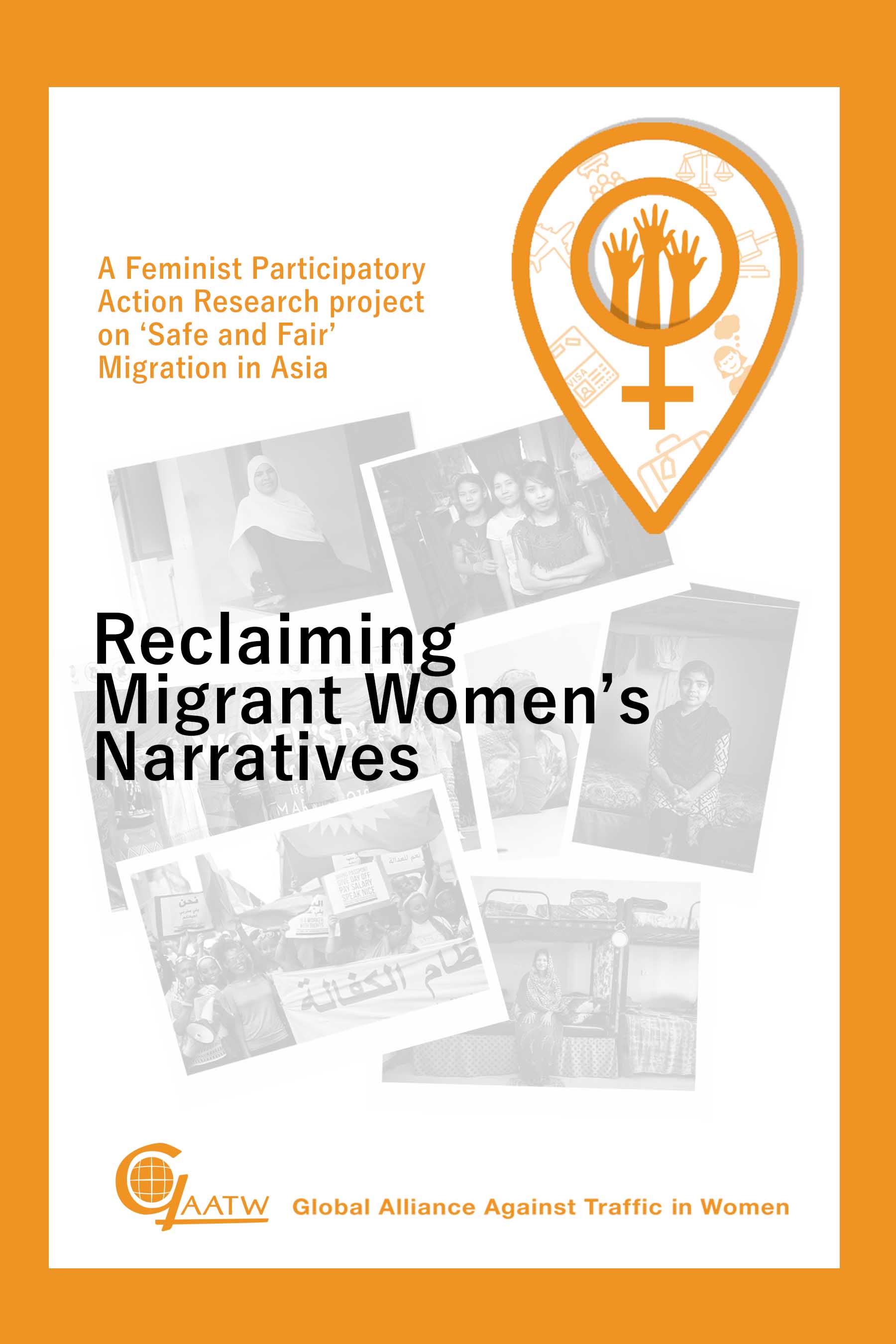
Reclaiming Migrant Women’s Narratives: A Feminist Participatory Action Research project on ‘Safe and Fair’ Migration in Asia
In 2018-2019, the International Secretariat of the Global Alliance Against Traffic in Women (GAATW-IS), in collaboration with eleven organisations across nine countries in Asia, carried out a Feminist Participatory Action Research (FPAR) on “Safe and Fair Migration: A feminist perspective on women’s rights to mobility and work”.
The research aimed to deconstruct dominant understandings of safe and fair migration and reshape these concepts from a feminist perspective. It was our collective effort to deconstruct and reshape a narrative of labour migration that is safe and fair for women workers, especially those in the most marginalised segments of society. This study serves as evidence to fight for the rights of migrant workers and amplify women’s voices in the local, regional, and international migration agenda.
The reports show that Safe and Fair migration cannot happen in a silo – the factors that produce gender segregated labour markets, industries dependent on flexible, underpaid and overworked migrant labour require a systemic change. This change can happen at the grassroots level, through self-organised groups of women (migrant) workers. Overall there is a need for critical conversations about serious limitations of safe migration policies and governance mechanisms in the context of a labour market scenario is which capital and power are increasingly being taken away from workers and placed into the hands of a few, under the thumb of repressive regimes.
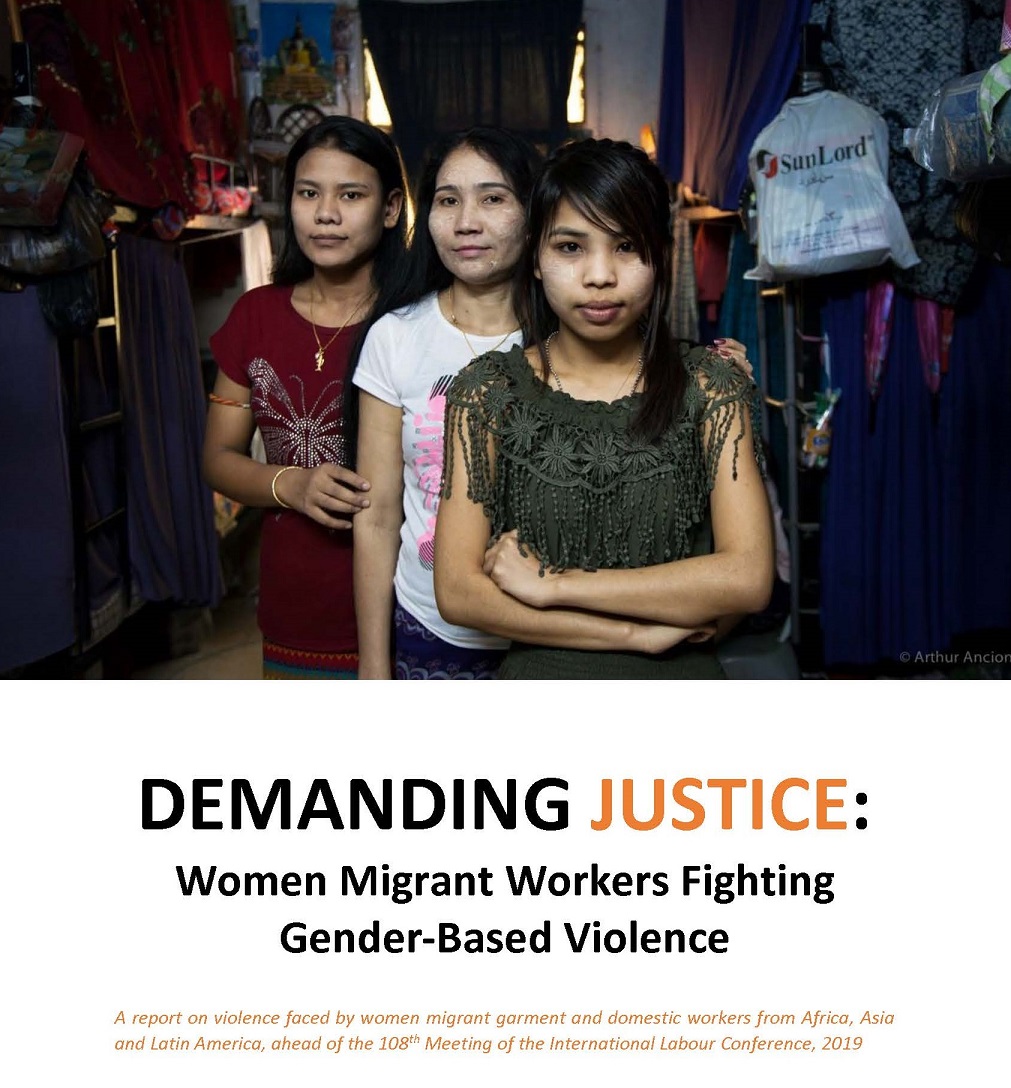
Demanding Justice: Women Migrant Workers Fighting Gender-Based Violence
This report is based on research among women migrant workers carried out by thirty organisations and individual researchers across twenty-two countries in Asia, Africa and Latin America. The aim of the research was to document the nature of violence, harassment and exploitation that women migrant workers face, how they deal with it, and their demands for change.
Overwhelmingly, the data across continents and work sectors pointed to similar trends. Women Migrant Workers (WMWs) experience a continuum of gender-based violence and harassment, ranging from verbal insults to severe physical abuse, rape and sexual assault, psychological abuse and bullying, before, during and after their migration. WMWs do not experience physical and sexual violence and harassment as stand-alone problems. They are part of a system in which labour is violently extracted from their bodies.
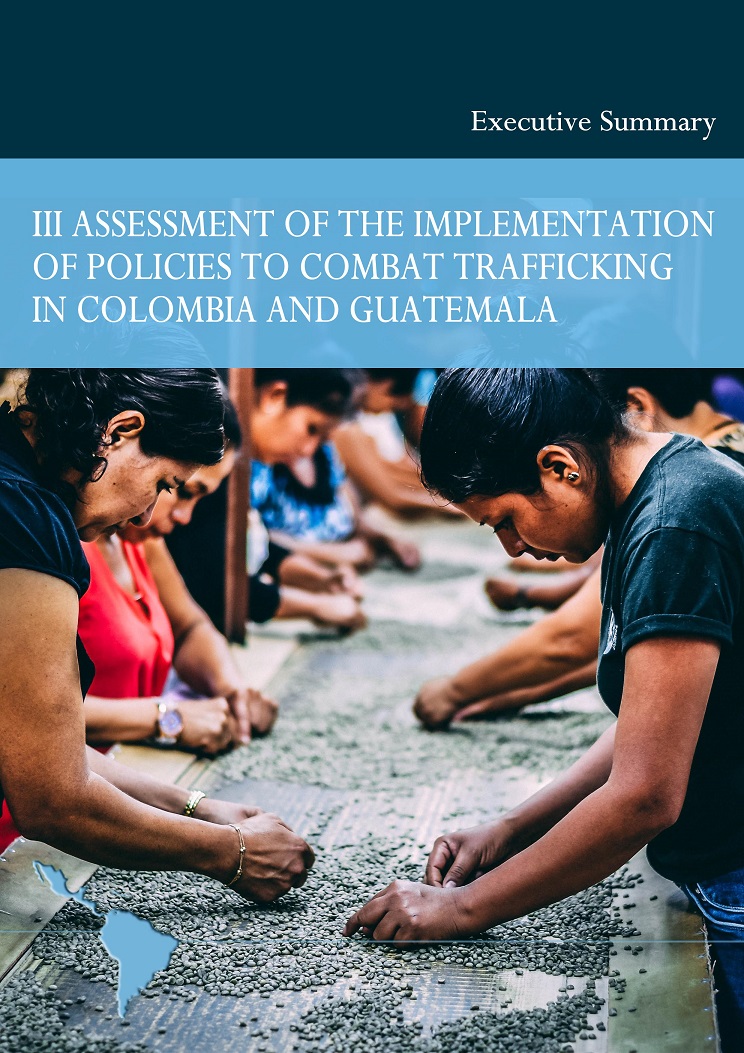
III Assessment of the Implementation of Policies to Combat Trafficking in Colombia and Guatemala
In 2018, the Corporación Espacios de Mujer and ECPAT Guatemala re-evaluated anti-trafficking legislation in Colombia and Guatemala in order to identify the gap between what the legislation states and its implementation.
2018 is a crucial year for the fight against human trafficking in Colombia since a new national strategy is expected to be developed which will guide State efforts in the coming years. This III Assessment supports the adoption of initiatives including sectoral and inter-disciplinary protocols, rules, and regulations that seek to address the issue of human trafficking in state policy. In Guatemala, legislative progress is evident through the existence of several anti-trafficking policies and the approval of two instructions to enhance trafficked persons' care and support effective research. Nevertheless, there are still challenges in achieving an effective approach to prevent human trafficking and ensure the comprehensive protection of trafficked persons.
Both countries continue to place most focus on prevention, awareness-raising and training. Protection and assistance of trafficked persons continue to be understaffed and underfunded. Both states do not address the social, economic, political, and cultural factors that make people vulnerable to trafficking.
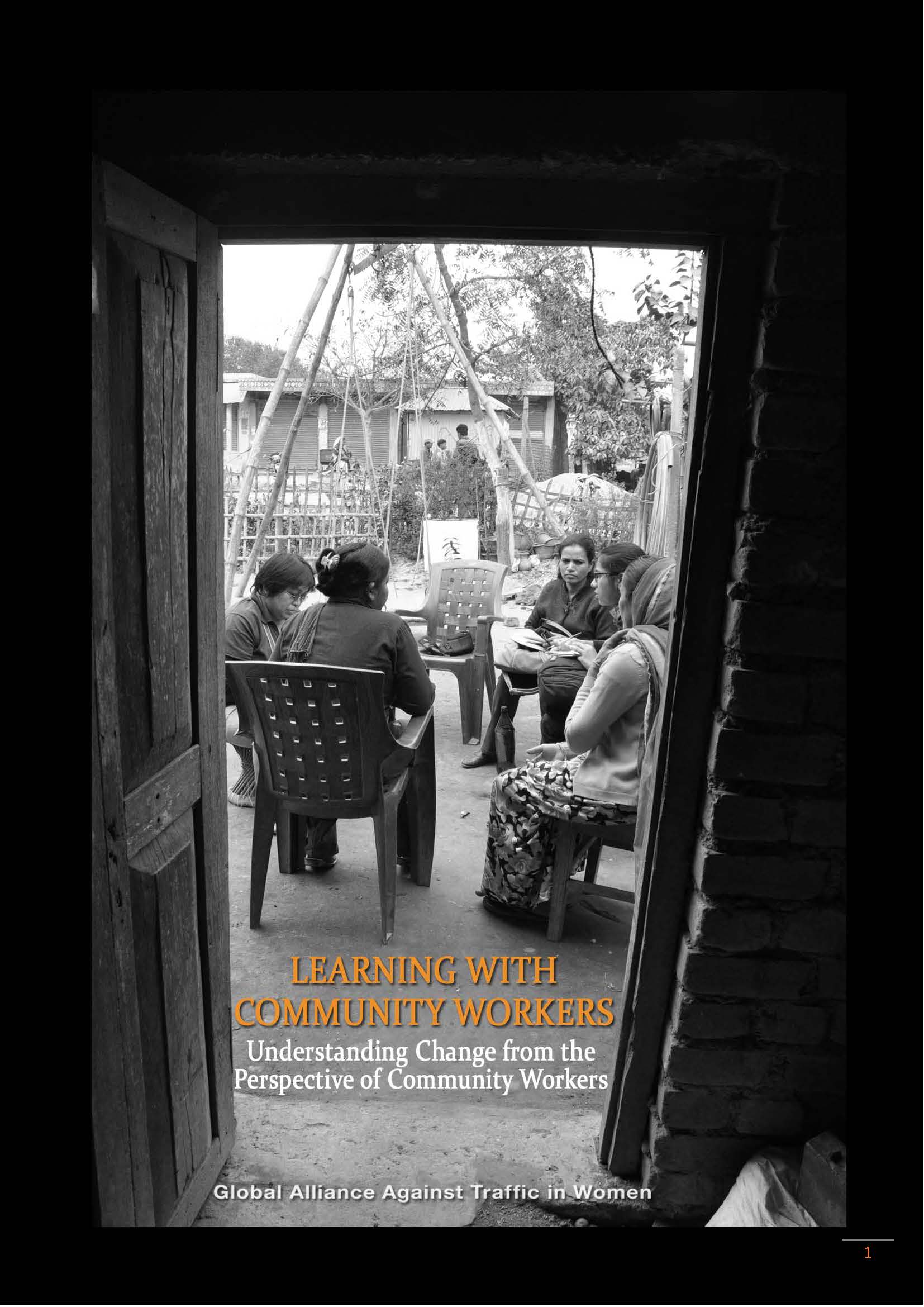
Learning with Community Workers
Learning with Community Workers: Understanding Change from the Perspective of Community Workers
Community workers have been on the frontline of delivering direct services and information to individuals and communities. Their role takes on an added value as they create the foundation of community-level interventions especially in promoting women’s empowerment and in providing information about safe migration.
In 2017, the Global Alliance against Traffic in Women (GAATW) focused on the work and personal journeys of community workers in fostering women’s empowerment and social change within the community. GAATW initiated an intensive learning exercise with community workers of the Work in Freedom Project with the overall goal of recognising community workers as critical agents of change, in building an environment which is conducive to upholding women’s rights both in community and in their migration journeys.
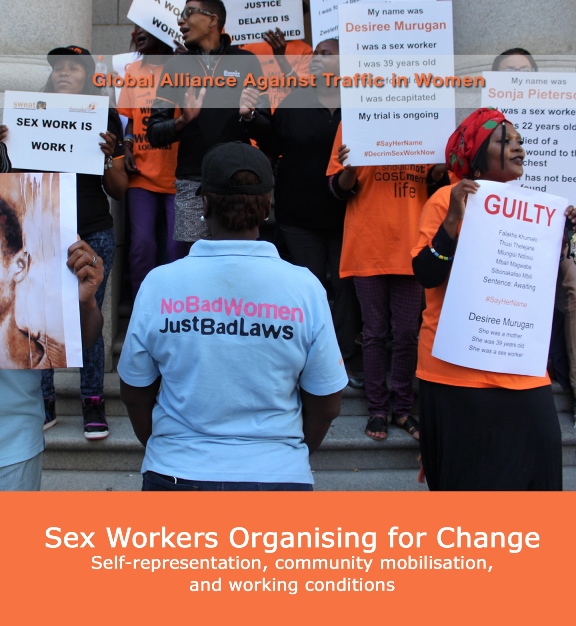
Sex Workers Organising for Change: Self-representation, community mobilisation, and working conditions
español polski svenska français italiano português руский deutsch
Sex worker rights organisations are creatively responding to violence, exploitation and other abuses within the sex industry, including instances of human trafficking, according to a new report published by the Global Alliance Against Traffic in Women, Sex Workers Organising for Change: Self-representation, community mobilisation and working conditions.
The report is based on research conducted with sex worker organisations in seven countries: Canada, Mexico, Spain, South Africa, India, Thailand and New Zealand. It highlights cases where sex workers, or sex worker organisations, learnt of situations where a woman was experiencing violence, working under unacceptable conditions, or was brought to the industry through force or deception, for the purpose of exploitation. In these instances, sex workers resolved the issue as a collective, by providing advice and referral to other organisations, negotiating with the brothel owner/madam, chasing the pimp out of their area, or gathering money to help the woman return home.
Beyond support for individual cases, this report also documents how sex worker rights organisations mobilise sex workers and their allies to resist stigma, discrimination and oppression, and to collectively voice their concerns, demand their rights, and participate in public and political life. This type of collective action builds confidence in sex workers and helps them better protect themselves and their peers against violence and abuse.
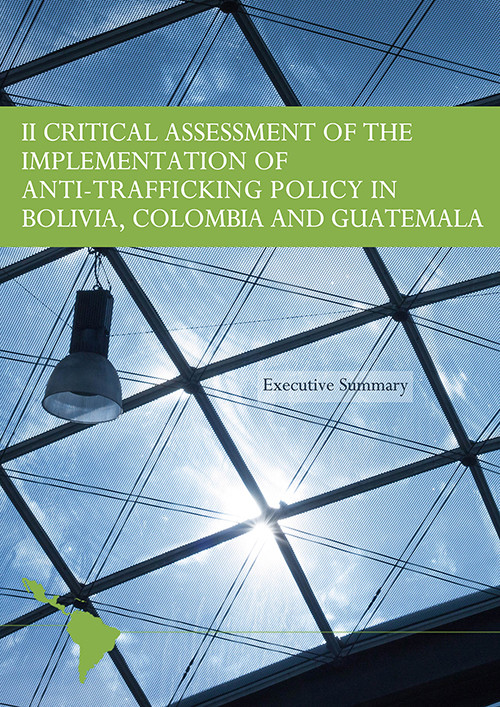
II Critical Assessment of the Implementation of Anti–Trafficking Policy in Bolivia, Colombia and Guatemala
For the second year in a row, Fundación La Paz, Corporación Espacios de Mujer and ECPAT, with the support of the International Secretariat of GAATW, conducted an analysis of anti-trafficking policies and services in Bolivia, Colombia and Guatemala to assess the gap between what the legislation states and the services actually provided.
The reports find that the legislation against human trafficking is still not effectively implemented in any of the three countries. Institutions are not fulfilling all of their responsibilities nor are they facilitating the restitution of the violated rights of trafficked persons. Not only is there an inadequate budget allocation to enforce the law, but most institutions responsible for prevention, care or prosecution are unaware of the budget available for their implementation. There is no uniformity in the collection of information, which results in a high degree of ambiguity and, therefore, a lack of knowledge about the crime and associated violations. A proper recording of trafficking cases would make it possible to classify and quantify information for the purpose of designing more appropriate public policies.
One need identified in all three countries is ongoing training of specialists involved in the processes of identification, care, protection and prosecution. Finally, it is worrisome that states generally continue to fail to link prevention strategies with public policies that deal with structural aspects, such as poverty or the guarantee of basic rights.
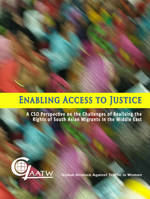
Enabling Access to Justice: A CSO Perspective on the Challenges of Realising the Rights of South Asian Migrants in the Middle East
In 2015-2016, the GAATW International Secretariat implemented a project to identify cases in which migrant workers from South Asia who had travelled to the Middle East as temporary labour migrants were trafficked, and to identify the barriers those workers faced accessing justice. A total of thirteen partner organisations from seven countries (Bangladesh, India, Jordan, Lebanon, Kuwait, Nepal and Sri Lanka) participated in the project.
This report captures one area of learning that emerged from the project: the barriers that project partners experience or observe when supporting migrant workers to access justice. It concludes with reflections on the lessons learnt by GAATW about the obstacles to justice for migrant workers, but also for organisations seeking to assist migrant workers and the effort to overcome those barriers. It highlights the complexity of human trafficking, and the many challenges along the road to justice.
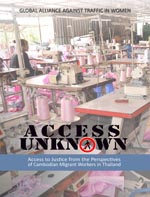
Access Unknown: Access to Justice from the Perspectives of Cambodian Migrant Workers in Thailand
Cambodian migrant workers in Thailand usually do not pursue justice after rights violations due to a lack of trust in the police and courts, research conducted by GAATW and partners found.
Lack of information about labour and migration laws and regulations was one factor among those interviewed that made them vulnerable to exploitation and human trafficking. When violations occurred they did not seek justice, either because they are undocumented or because they don’t believe they will receive a fair outcome against a Thai employer. Interviewees spoke of lack of examples of success that might inspire their pursuit of justice - no one they knew had successfully accessed a fair resolution though the legal system.
These are some of the main findings of our new research ‘Access Unknown: Access to justice from the perspectives of Cambodian migrant workers in Thailand’, which interviewed 59 migrant workers, men and women working in seven different industries, in Thailand and after returning home. This research aimed to examine why there is still such a significant disconnect between the currently available options in the legal system and Cambodian workers’ unwillingness or inability to practically access them.
